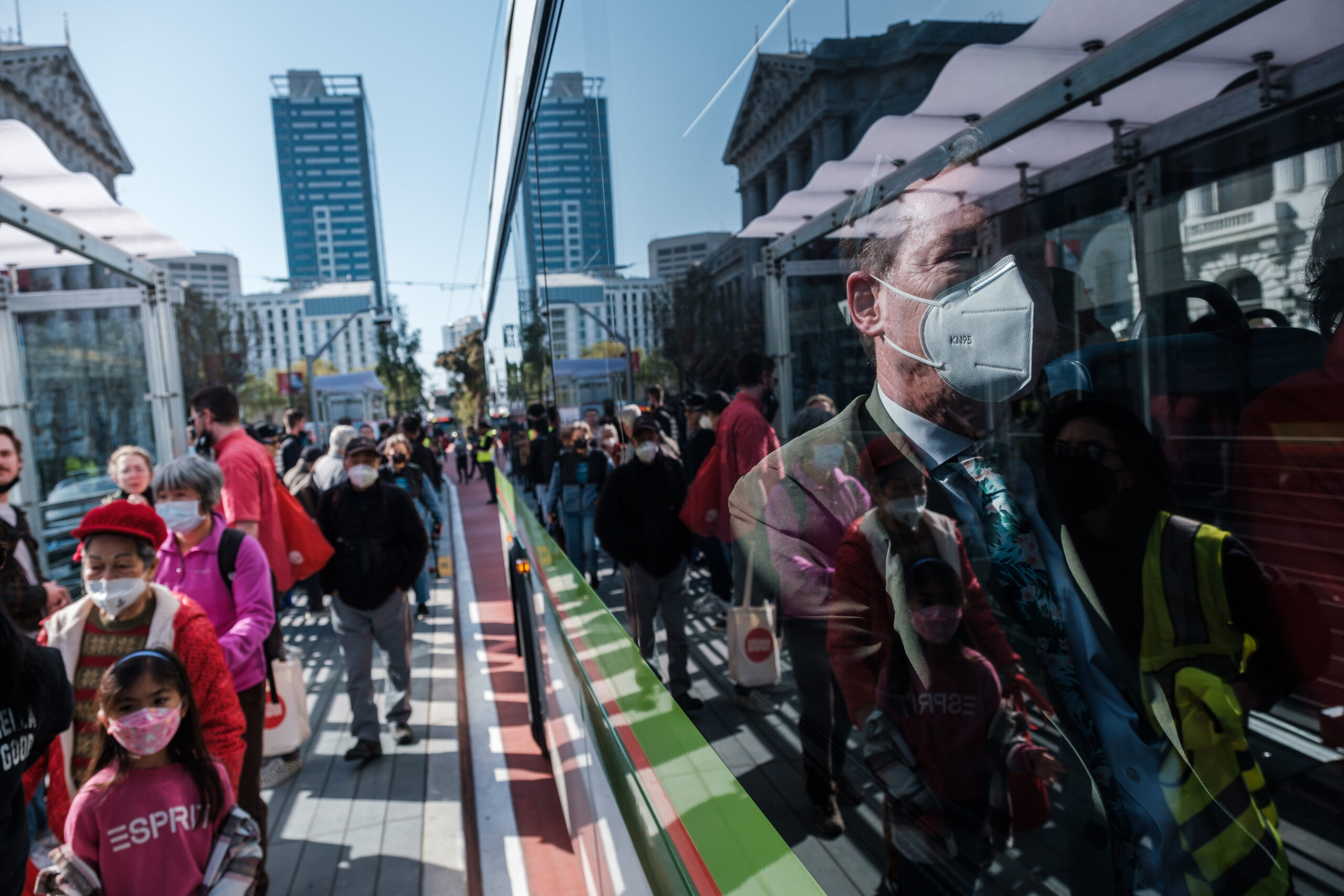Disability and senior rights groups are in an uproar after the SFMTA and BART made masks optional in light of a court decision striking down the federal mask mandate, saying the new rules put the most vulnerable at risk when using a critical public service.
A virtual town hall hosted by Senior and Disability Action featured advocates and public officials speaking about the necessity of masking on local transit services and potential pathways of imposing new mask mandates.
BART Board President Rebecca Saltzman is one of the public transportation officials most vocally supportive of mask mandates. She said BART and other transit agencies were caught on the back foot by the federal court decision.
After learning that BART’s general manager lacked the authority to reintroduce the mask mandate by themselves, Saltzman pushed for an amendment to the agency’s Customer Code of Conduct that would require masks. BART’s board will vote on the measure—which would run through July 18—at their April 28 meeting.
“A lot of folks are getting tired of Covid and folks want to wish it to be over, but it’s not over, particularly for our most vulnerable,” Saltzman said.
Saltzman said she has a two-year-old daughter who is not yet eligible for a vaccine and a nephew with autism and underlying health conditions that put them at high risk for infection. She added that she’s hopeful “a strong majority of the board” will approve the mandate.
Debate over the reintroduction of a masking mandate is emerging as signals of community spread—such as wastewater surveillance data and Covid test positivity rates—have started to increase. Both overall reported cases and hospitalization have ticked up in recent weeks, although they are still a fraction of the levels seen during January’s Omicron wave.
Ridership on public transit has also started to rise from pandemic lows. In March BART reported 3.34 million riders, a more than 32% jump from the month prior, although only a third of pre-Covid expectations.
Once BART passes their mask mandate Saltzman said she’ll reach out to the other local transit agency boards asking them follow BART’s lead. She sent a letter to the lead public health officials in the five-county Bay Area asking them to implement a regionwide transit mask mandate, taking a page from Los Angeles County, which made a similar move last week.
“That is really the best course of action because we have more than two dozen transit agencies in the region and it’s going to take a long time to deal with this agency by agency. It should really be regionwide, just like we’ve had throughout Covid,” Saltzman said.
Dr. Louise Aronson, a geriatrician at UC San Francisco said that it’s important to keep focus on how masking is important for keeping others who may be more vulnerable safe.
“I have an 88-year-old mother that I love and friends and people in my practice that are at a higher risk than I am. If people want to get more selfish about it, not having a cold for two-plus years is great,” Aronson said.
“Part of it can be having one-on-one conversations with people to explain how hurtful it is both from the perspective of being a risk to your health, but also the sense that I don’t matter as a person, or my extra challenges don’t matter to anyone.”
Loren Steinberg, a disability rights advocate, used the example of a recent prom held by a high school in San Mateo where, like SFMTA and BART, masks were strongly recommended but not required.
At least 90 of the 600 students who attended the event in San Francisco ended up testing positive for Covid.
“When it comes to a global pandemic when it comes to a respiratory, airborne illness, there is no personal choice, that all goes out the window,” Steinberg said. “Imagine that scaled up to the number of riders on public transit every day.”
